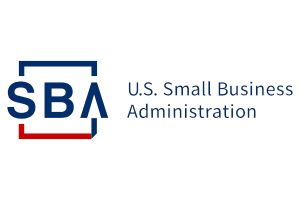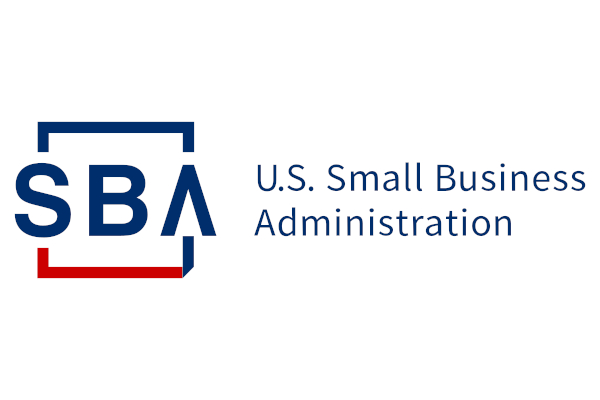 FLINT, Mich. – In an order issued Monday, U.S. District Judge Matthew Leitman held that a longstanding rule prohibiting the U.S. Small Business Administration (SBA) from providing loans to business that offer entertainment of a “prurient sexual nature” does not apply to the Paycheck Protection Program (PPP) created by Congress through the Coronavirus Aid, Relief, and Economic Security (“CARES”) Act.
FLINT, Mich. – In an order issued Monday, U.S. District Judge Matthew Leitman held that a longstanding rule prohibiting the U.S. Small Business Administration (SBA) from providing loans to business that offer entertainment of a “prurient sexual nature” does not apply to the Paycheck Protection Program (PPP) created by Congress through the Coronavirus Aid, Relief, and Economic Security (“CARES”) Act.
“While Congress may once have been willing to permit the SBA to exclude these businesses from its (the SBA’s) lending programs, that willingness evaporated when the COVID-19 pandemic destroyed the economy and threw tens of millions of Americans out of work,” Leitman wrote in his order. “Simply put, Congress did not pick winners and losers in the PPP.”
Noting that “Congress was aware that the SBA had historically declared certain classes of businesses ineligible for SBA lending,” Leitman wrote that Congress had decided to increase the scope of eligibility for PPP loans “by establishing only two criteria for PPP loan guarantee eligibility and providing that ‘any business concern… shall be eligible’ for a PPP loan guarantee if it met those criteria.”
“Thus, the SBA’s PPP Ineligibility Rule is invalid because it contravenes the PPP,” Leitman wrote.
In several sections of the order, Leitman’s ruling draws on a decision issued last week by U.S. District Judge Lynn Adelman of the Eastern District of Wisconsin, who ruled in favor of clubs which filed in that state.
Noting that Adelman “recently held that this statute does not preclude the precise award of injunctive relief that Plaintiffs seek against the SBA here,” Leitman then quotes Adelman’s decision in holding that “§ 634(b)(1) does not preclude injunctive relief against the SBA in a case such as this.”
Both courts held that while the relevant statute “allow(s) the agency to be sued but specifically provide that ‘no attachment, injunction, garnishment, or other similar process, mesne or final, shall be issued against the [agency] or [its] property,’” the injunctive relief sought by the clubs in these cases fall outside of the sort of relief barred by statute.
“[The statute] was not intended to render the agency immune from injunctive relief in situations where the agency has exceeded its statutory authority and where an injunction would not interfere with the agency’s internal operations,” Leitman quoted from Adelman’s recent decision.
“For the reasons cogently explained by the district court in Camelot Banquet Rooms, the Court is persuaded that injunctive relief is available to Plaintiffs,” Leitman wrote in his order. “As in that case, the Plaintiffs here seek only ‘to set aside unlawful agency action. They do not seek to attach the SBA’s assets or otherwise interfere with its internal operations.’”
In evaluating whether to grant a temporary restraining order (TRO) like the one at issue in this case, one of the things the court must determine is whether the party asking for the TRO “has a strong likelihood of success on the merits” – which Leitman found the plaintiffs do in this case.
“The Plaintiffs have shown a strong likelihood that they will prevail on the merits of their claim that the PPP Ineligibility Rule is invalid,” Leitman wrote, adding that “Plaintiffs have demonstrated that the rule cannot stand because it directly conflicts with the PPP.”
Leitman found that the “text of the PPP makes clear that every business concern meeting the statutory criteria is eligible for a PPP loan during the covered period” noting that “Congress identified in the PPP only two criteria that a business concern must satisfy in order to qualify for loan guarantee eligibility: (1) during the covered period (2) it must have less than 500 employees or less than the size standard in number of employees established by the Administration for the industry in which the business operates.”
“Under the settled expressio unius exclusio alterius rule of statutory construction, Congress’s express listing of these two eligibility criteria indicates that Congress did not intend there to be any other criteria for loan guarantee eligibility,” Leitman added.
Ultimately, the “plain language of the PPP makes clear that any business concern is eligible for a PPP loan if it employed the requisite number of Americans during the covered period,” Leitman wrote. “Thus, the Defendants may not exclude Plaintiffs from participating in the PPP on the ground that they present entertainment or sell products of a ‘prurient sexual nature.’”
Leitman also addressed the government’s contention that “Congress could not possibly have intended to support the businesses that have historically been denied SBA financing under the Original SBA Ineligibility Rule – including certain sexually oriented businesses, private clubs that discriminate, and political lobbying firms.”
“While this argument has some initial surface appeal, it does not withstand closer scrutiny,” Leitman wrote. “Defendants are correct that it would ordinarily be absurd to conclude that Congress meant to provide financial assistance to, among others, certain sexually oriented businesses and private clubs that discriminate. But these are no ordinary times, and the PPP is no ordinary legislation.”
Reiterating that the COVID-19 pandemic has decimated the country’s economy, and the PPP is an unprecedented effort to undo that financial ruin,” Leitman emphasized that “(m)ore importantly, the PPP is an effort to protect American workers – as noted above, it is located within a Title of the CARES Act named the ‘Keeping American Workers Paid and Employed Act’ – and Congress could rationally have concluded that those workers need protection no matter the line of business in which they work.”
“From this perspective, Congress’s decision to expand funding to previously ineligible businesses is not an endorsement or approval of those businesses,” Leitman added. “Instead, it is a recognition that in the midst of this crisis, the workers at those businesses have no viable alternative options for employment in other, favored lines of work and desperately need help. It is not absurd to conclude that in order to support these workers, Congress temporarily permitted previously excluded businesses to obtain SBA financial assistance.”
In his order, Leitman does not address the underlying constitutional arguments the plaintiffs offered in support of their request for a TRO, because as Leitman wrote (citing well-established case law), “if a case may be decided on either statutory or constitutional grounds, [courts], for sound jurisprudential reasons, [should] inquire first into the statutory question. This practice reflects the deeply rooted doctrine that [courts] ought not to pass on questions of constitutionality… unless such adjudication is unavoidable.”
Leitman concluded his order by detailing the upshot of the TRO he has granted. Under the terms of the TRO, by 5pm Eastern time yesterday, the plaintiffs and intervenors were required to “transmit to counsel for Defendants the name and full contact information (including email addresses) for the employee of their lenders who has responsibility for their applications for PPP loans.”
The SBA then has until noon this Thursday (May 14) to “notify the identified lender representatives in writing that (a) the applications by Plaintiffs and Intervenors for PPP loans shall not be denied based on the ‘prurient sexual nature’ provisions of the Original SBA Ineligibility Rule, the 2019 SOP, and/or the PPP Ineligibility Rule, and (b) in the event that Plaintiffs and Intervenors otherwise meet the eligibility requirements for PPP loans, the SBA will guarantee the loans for which Plaintiffs and Intervenors have applied or attempted to apply.”
Leitman added it the plaintiffs “otherwise meet the eligibility requirements for PPP loans, the SBA shall guarantee the loans for which Plaintiffs and Intervenors have applied or attempted to apply.” He also noted that his is not a “nationwide injunction” and “does not affect in any way actions that Defendants may take in connection with applications for PPP loans by any entity other than the Plaintiffs and Intervenors in this action.”












